Accessibility means more than just an easy mode | PC Gamer - madrigalhiscon
Availableness agency more than fair an easy mode
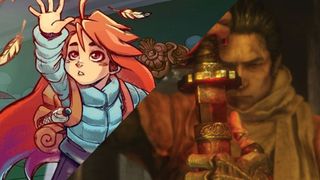
Accessibility Week
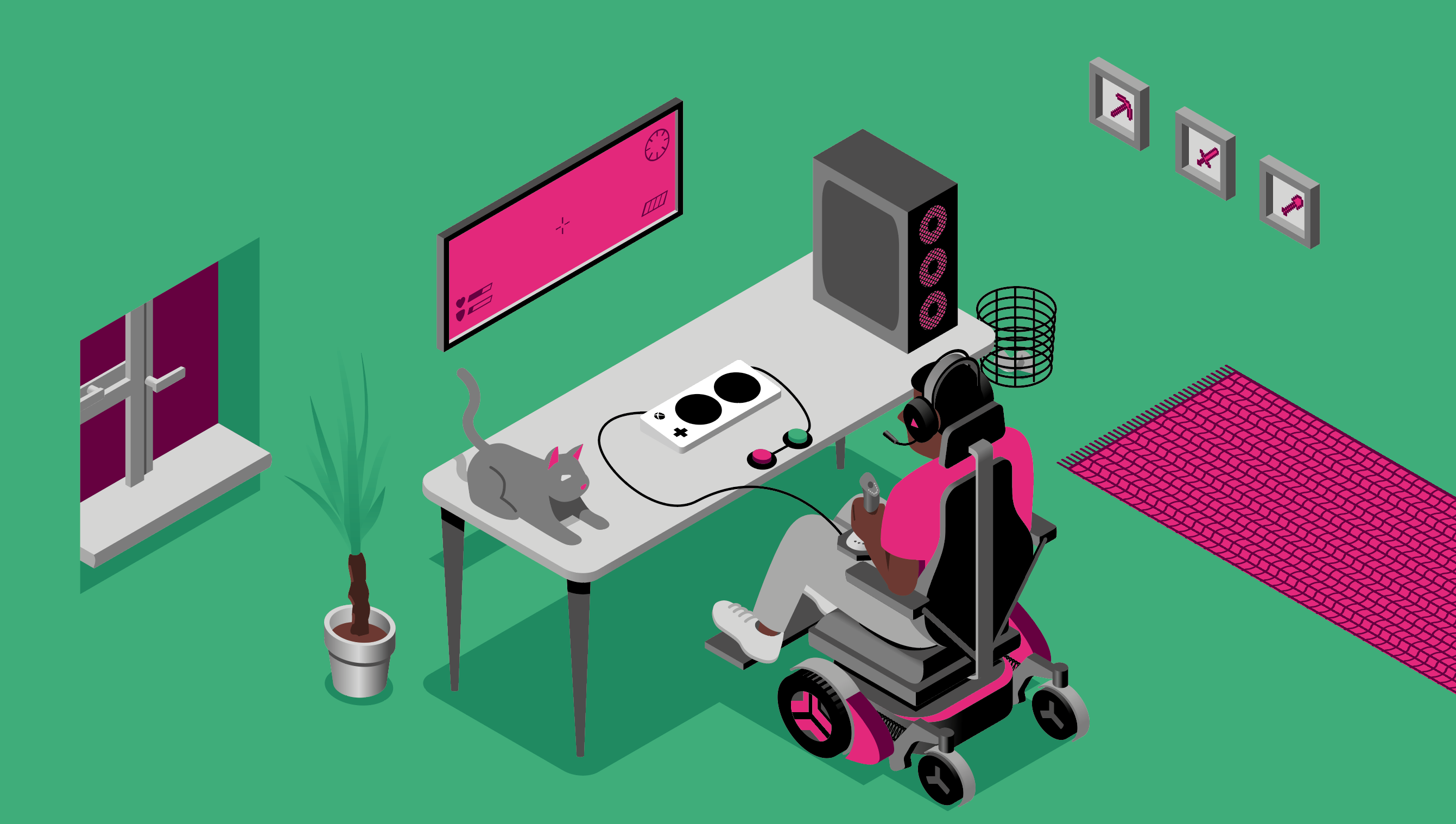
This feature is part of Microcomputer Gamer's Accessibility Hebdomad, gushing from Noble 16, where we're exploring accessible games, hardware, mods and more.
Difficulty is a theme that's been hashed out time and time again. The discussion first arose from the sticky-floored corners of arcades, simply it's still very much a subject that sits at the core of our hobby. When talking about difficulty, naturally approachability is going to come into the conversation, but adding an comfortable mode is non the golden ticket to solving a bet on's inclusivity issues.
The discussion around accessibility has never been solely astir the inclusion of easy modes. IT's vitally important to have conversations about how difficulty settings contribute to accessibility, but the conversation shouldn't stop there. They're for sure concerned, simply advocates for accessibility stimulate always said that games should go beyond exactly slapping on a 'God mode' mount, although including one certainly helps.
Out of all the possible options developers can admit in their games, difficultness modes seem to ruffle feathers the most. When disabled gamers and accessibility advocates talk of shipway a particular proposition game can cost more inclusive, in that location's always a battle outcry from certain communities. Their arguments lean to be specifically most trouble settings, including how different modes might impact the instrumentalist's experience, off the challenge, and take away from a game's artistic visual sensation and identity.
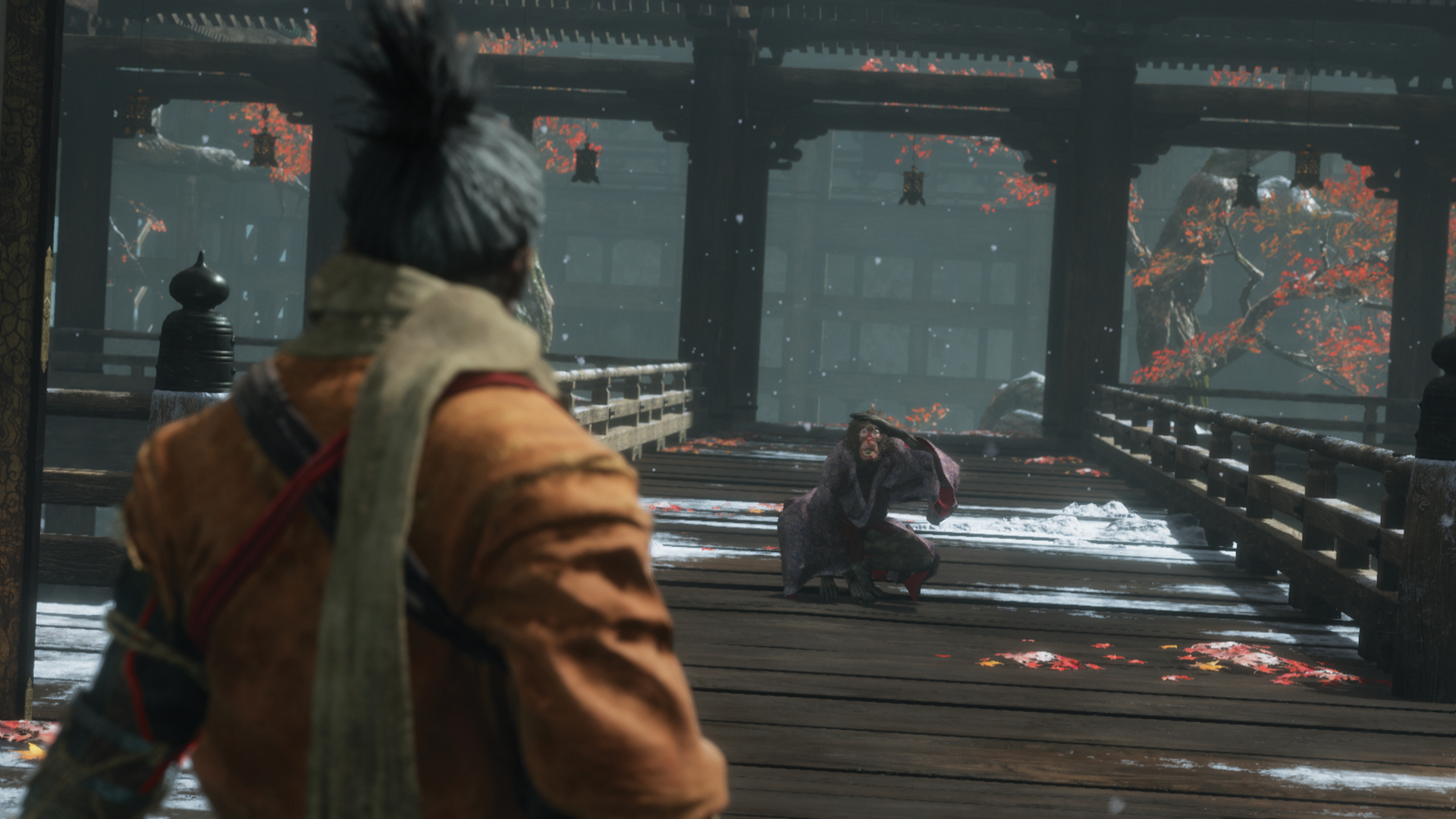
Simply the conversation surrounding accessibility has never been about taking anything away from a back—it substance adding options. The focus should get on equal opportunity and fairness, and that's what a great deal of players and ardent defenders of baffling games misunderstand.
Easy is subjective. What is easy for Maine, power not be easy for soul else. But with difficultness options, we can both enjoy an experience jointly
Steven Spohn, AbleGamers
Steven Spohn of AbleGamers, an organisation focalization on making games Sir Thomas More approachable for players with disabilities, ready-made an excellent Twitter string about this issue. "In any game, whether it's Sekiro, Dark Souls, operating theater any other skill-based game, there should be options to allow your health to be modified, your enemies health to be varied, and the game swiftness adjusted. This does not make the game easy. It allows people to nominate the game equal."
"Nobody is advocating that we deal your favorite game that is known for being frustratingly difficult and make it so easy nobody cares," Spohn continues. "The single request negotiable is to admit people World Health Organization cannot 'git gud' aside learning, to have the options to make the game playable."
"Rival" is the important word here, and Spohn even suggests using the term "Equal Mode" instead, to survive clearer that nonentity is trying to terminate games from being ungovernable.
When we acknowledge this, the take exception that developers front is how to create a game with a set of accessibility options that allow handicapped gamers to have the same experience that another players receive. That power include additional difficulty modes, but there is a long list of ways games can be made more accessible, from UIs you bottom resize to colourblind modes.
After realizing how effortful accessibility "public debate" tooshie be I've decided to put collectively a master thread with concise rebuttals to almost every cosmopolitan argument against accessibility that I can think about. This is that thread. Just about answers may be repetitive when viewed as a whole.April 8, 2019
We need to ask broader questions about how games can be designed to reduce demands along the player—that's where the conversation about accessibility should start. How can we wee-wee games more friendly for those with motor, modality, and hearing disabilities? How can we use clever secret plan design thusly every actor gets the synoptical experience, regardless of what they toggle in the settings? The players asking for more accessibility want challenging games as well, and creative solutions are needed to regain that balance.
A handful of games receive adjusted their settings and still do to offer the same experience for everyone. An article on the character of game difficulty by Ruth Cassidy (who has also left-slanting some fantastic words for our Accessibility Week) discusses how developers have successfully done this using Celeste, Control, and Pathologic 2. Dominance's fast-paced and dynamic gameplay doesn't work away subsequently a few tweaks in the assist menu, and Morbid 2's fifteen different sliders stimulate explanations on how and wherefore they affect gameplay, letting you tailor the undergo as you care.
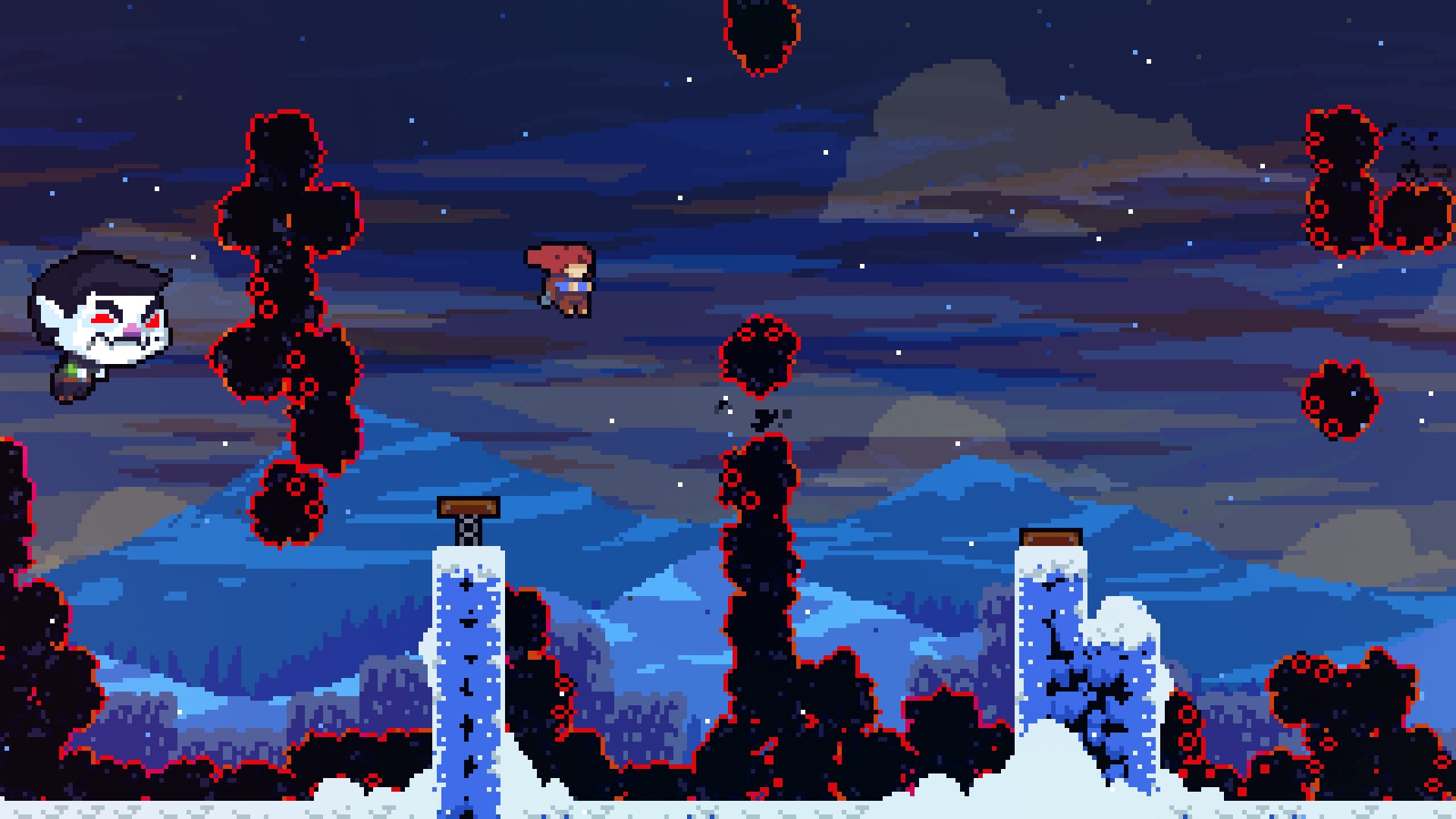
Celeste is a yob platformer, one of the toughest dead at that place, but its assist manner comes with a number of adjustable difficultness settings, letting players change over up the rules and mechanism how they equal. It was something celebrated by fans and, as Cassidy points out, even with the settings changed, the developer's main vision is never spoiled.
Celeste cadaver a spunky that requires attention to the timing and momentum that's at the heart of platforming. Celeste's writer and designer, Maddy Thorson, even tweeted just about their "Celeste-style assist mode" suggestions for FromSoft's tough-as-nails execute-adventure Sekiro.
If Sekiro had a Celeste-style Assist mode:-Battle F number (50-100%, sets game speed while enemies are aggro'd)-Resurrections (+1, or infinite)-Invisible While Unavowed-Countless Posture-Invincible (while drinking calabash, or always)April 3, 2019
The design school of thought behind Sekiro and FromSoft's work isn't even about creating difficult games. Ian Hamilton, an accessibility specialist and consultant who has worked with AAA and independent developers, explained connected Twitter that FromSoftware's goal of creating a series that requires a treble skill lay is far from what its Almighty wants.
"Many assume that [FromSoft]'s finish is to make games that deman a high attainment bar; that's not true," Hamilton says. "American Samoa Hidetaka Miyazaki said in an interview their goal is not to make games for hoi polloi who have a high skill level, their goal is to hold games for people who enjoy the feeling of success through persistence, which is a fundamentally different thing.
"It's an grand distinction, it means that if someone enjoys the belief of success through persistence but can't succeed no matter how more than they persist, that's directly against the designers' imagination."
@davethier "easy mode" is a really pointless instrument, there are other ways. To start with information technology is worth looking for at what the designer's enwrapped is, what they want the players to experience. Many assume that From's goal is to make games that require a superior skill debar; that's non true.Marchland 28, 2019
It's unfortunate that difficulty is trussed to the identities of some players, but as games have switched focalise from leaderboards and high loads, so has the direction players engage with them. In her 'Ditch the Trouble Discourse' talk at the Ludicious X game festival in 2020, Jennifer Scheurle, lead game designer at Blackbird Interactional, addressed this change.
Virtually players engage with games in a masses of shipway and with diverse motivations
Jennifer Scheurle, BBI
"All but teams testament identify a grouping of core player motivations that they are sounding to cater to end-to-end the experience, and that's how discussions around challenge emerge in context," Scheurle says. "Most players plight with games in a multitude of ways and with diverse motivations. Very few thespian types only guardianship almost single of those motivations."
Sekiro and the Soulsborne games in overall are eager examples to apply here. FromSoft's games birth incredible worlds full with stories, mystery, and traditional knowledge. Adding Sir Thomas More settings to any of FromSoft's crop would not take anything away from any of those features. The idea that adding Sir Thomas More options threatens the developer's artistic imagination is only not true, and plenty of developers have aforementioned as much, including War god director Cory Balrog, Double Fine, and Insomniac Games. People preceptor't play these games just for the difficulty, and only if viewing FromSoft's work, and games in general, A things to capture diminishes the work that went into them.
Exploring and learning almost availableness in #gamedev has been one of the most rewarding and fulfilling parts of my life history. Being part of a team up that continuously wants to open barriers for increasingly people to play games is an observ for me. Blissful #GAAD everyone! https://t.co/3vZZScemhIMay 20, 2021
Shortly, there is no downside to implementing more options for a greater sort of players. And it's fair-and-square good business sense, if developers and publishers care about the issue of possible customers they have. It takes work, but the event is your game reaching a wider audience. This means adding complete push button remapping, car-assist, clear text formatting, typeface size adjustment, manual saving, unfrosted visual and audio cues—and that's just a small portion of the many slipway games can be made more handy.
Dispelling myths around accessibility and development is important, but it's not just along game creators to piss changes. We as players also have a responsibility. We need to recognise accessibility As more than right adding different difficulty modes, and that including more options does not transfer the core experience in whatsoever way, at all. The earlier we separate the thought of accessibility and difficulty being the same thing, the more inclusive our communities can become. The goal is to create an industry that respects and acknowledges disabled gamers, and that includes respect from players.
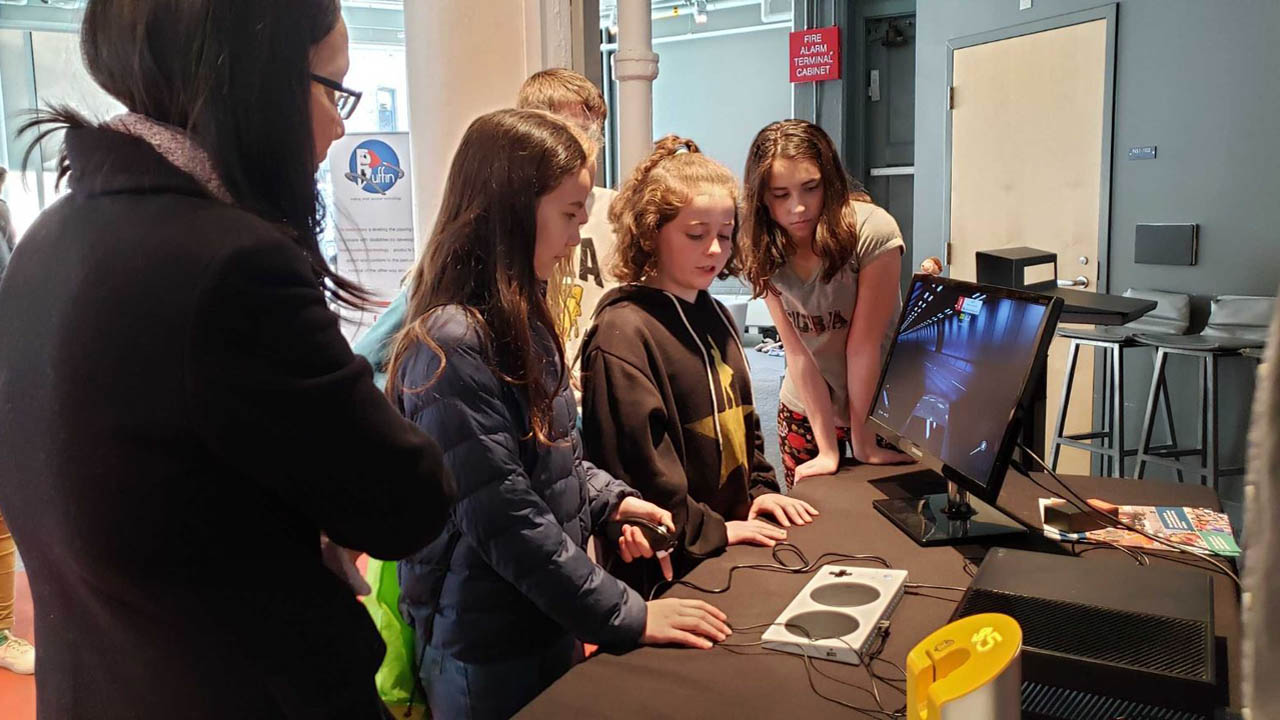
If you're looking for astonishing resources about availability, websites equivalent Can I Play That and Dager System are helping disabled players past providing journalism settled purely through the crystalline lens of gaming handiness. There's also the aforementioned AbleGamers, a charity that helps assist people with disabilities bring off games. For developers looking to amend their game's inclusion, Ian Hamilton has created the convenient Games Accessibility Guidelines.
Source: https://www.pcgamer.com/accessibility-means-more-than-just-an-easy-mode/
Posted by: madrigalhiscon.blogspot.com



0 Response to "Accessibility means more than just an easy mode | PC Gamer - madrigalhiscon"
Post a Comment